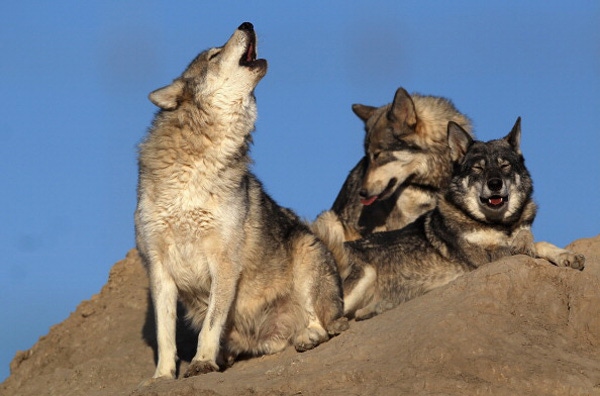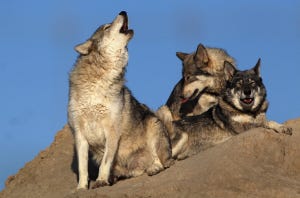Are Wolves A Threat To Your Cattle?
August 13, 2014

There’s been mountain lion recently sighted in the river hills near our ranch, and we suspect we lost a calf this summer to this big cat. In my area, predators aren’t very common, and the death of even one calf is disappointing, to say the least. I can’t imagine how frustrating it must be to deal with predators on a regular basis.
But for many ranchers -- from Northern Minnesota to Southern New Mexico –predation of livestock by cougars, mountain lions and wolves carries a huge economic bite. In fact, in the lower 48 states, 5% of all cattle losses are due to wolf predation, says westernwolves.org.
READ: Younger Calving Cows Most At Risk To Predators
According to westernwolves.org, while wolf predation causes relatively few livestock losses compared to other sources, that small percentage can add up to big losses for individual livestock producers and their livelihood. The website points out that there are many compensation programs for lost livestock -- both from the private and public sectors. While such programs sound great, I’ve been told by ranchers in Northern Minnesota that it’s often difficult to prove a wolf attack because there are no remains of the victim animal.

Photo Credit: John Moore / Staff / Getty Images
The westernwolves.org website continues: “Despite the challenges of raising livestock in areas with predators, many producers remain successful and some are discovering that certain husbandry techniques used to protect livestock from wolves can actually lead to reduced predation by other animals, higher stock weights and survival, and increased profits.
“Current research suggests that livestock production may indirectly benefit wolves since the habitat and open space provided by ranch lands is crucial for big-game animals, which are the primary prey of wolves. Successful wolf conservation may ultimately depend on wolves and livestock producers learning to coexist.”
Subscribe now to Cow-Calf Weekly to get the latest industry research and information in your inbox every Friday!
The organization encourages the use of sheep guard dogs, range riders, fladry (flags that act as a visual deterrent), improved fencing and pasture rotation to help protect against wolf attacks and help manage livestock in areas where predators are an issue. Research is also underway to develop a wolf repellent and a sound device to deter wolves from preying on livestock.
Unfortunately, some of these management practices can be costly and labor intensive, making them difficult to execute. When a predator is killing thousands, or even tens of thousands, of dollars’ worth of cattle, I can see why a rancher would prefer not to have to coexist with wolves. However, killing a wolf can lead to public outcry and even death threats to ranchers and their families.
READ: Wolves' Economic Bite On Cattle Goes Way Beyond Predation
Watch this video from the New Mexico Cattle Growers Association, and you’ll see what I mean.
I realize that there is a lot of animosity between environmental groups and ranchers, but folks must realize the economic hit of predation can sink a ranchers’ livelihood. I’m not sure what the solution is, but I would be interested to hear from readers.
Do you live in an area where predators are a big concern? What restrictions do you have to abide by to protect your livestock from these predators? Has the general public fought against your right to protect yourself from these predators? How have you managed your livestock to ward off attacks? Share your experiences in the comments section below.
The opinions of Amanda Radke are not necessarily those of Beefmagazine.com or the Penton Farm Progress Group.
Other helpful BEEF resources:
How Much More Upside To The Cattle Market Can There Be?
What You Need To Know About Chemical Castration
3 Alternatives For Replacement Beef Heifers
How To Properly Store And Handle Cattle Vaccines
9 Tips For Preventing Pasture Bloat In Cattle
Take A Virtual Tour: World's Largest Vertically Integrated Cattle Operation
You May Also Like


.png?width=300&auto=webp&quality=80&disable=upscale)
